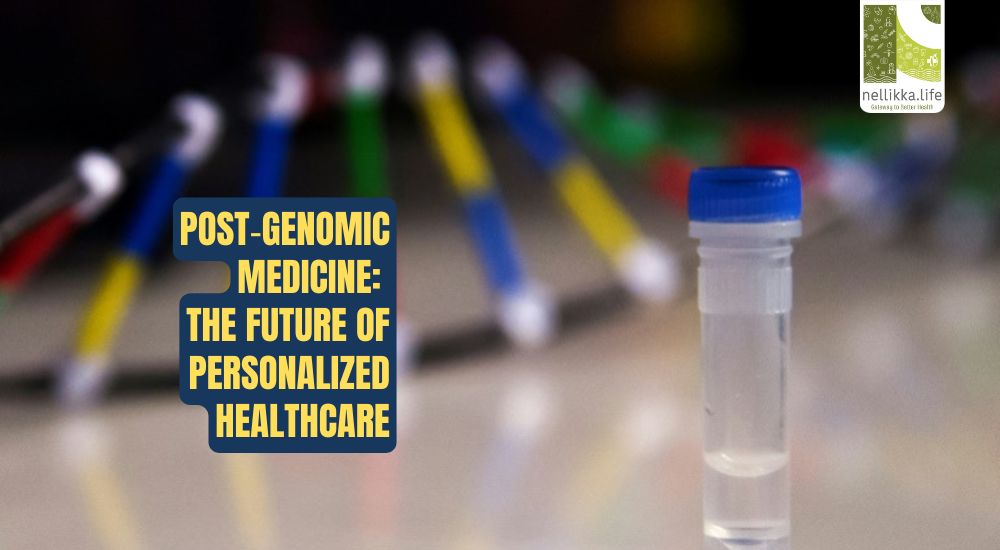Post‑Genomic Medicine: The Future of Personalised Healthcare

The completion of the Human Genome Project in 2003 marked the beginning of a new era in medicine—post-genomic medicine. Unlike traditional medicine that often applies a “one-size-fits-all” approach, post-genomic medicine leverages genetic data to understand individual biological differences. This advancement is revolutionizing how diseases are diagnosed, prevented, and treated.
In this blog, we explore what post-genomic medicine is, how it works, and why it’s reshaping the healthcare landscape globally.
What is Post-Genomic Medicine?
Post-genomic medicine refers to the application of genomic information after the decoding of the human genome. It integrates data from genomics, transcriptomics, proteomics, metabolomics, and epigenomics to offer personalized and predictive medical care.
This approach aims to:
- Predict disease risk
- Tailor drug therapies
- Identify genetic predispositions
- Enable early intervention
- Prevent disease progression
Key Components
1. Genomics
Understanding variations in DNA sequences, such as single nucleotide polymorphisms (SNPs), that influence disease risk and drug response.
2. Transcriptomics
Study of RNA transcripts to assess gene expression levels, which can indicate disease states like cancer or inflammation.
3. Proteomics
Analysis of the entire set of proteins produced by an organism, revealing how diseases affect protein production and signaling.
4. Metabolomics
Investigation of small molecules and metabolic pathways, offering insight into real-time body processes and disease development.
5. Epigenomics
Examines heritable changes in gene function without altering DNA sequences (like DNA methylation), influenced by lifestyle and environment.
Applications in Clinical Medicine
1. Personalized Medicine
Patients receive treatments based on their genetic makeup. For example, breast cancer patients are screened for BRCA1/2 mutations to determine appropriate therapy.
2. Pharmacogenomics
Understanding how genes affect individual responses to drugs, helping to avoid adverse reactions and ensure efficacy. E.g., Warfarin and CYP2C9/VKORC1 gene variations.
3. Early Diagnosis
Molecular signatures identified through genomics help detect conditions like cancer, Alzheimer’s, or autoimmune disorders in their earliest stages.
4. Gene Therapy
Replacing, editing, or silencing faulty genes to treat diseases such as cystic fibrosis or sickle cell anemia.
5. Public Health and Preventive Medicine
Large-scale genomic screening can identify at-risk populations, aiding in early preventive strategies.
Ethical, Legal, and Social Implications (ELSI)
Post-genomic medicine raises ethical concerns:
- Privacy of genetic data
- Genetic discrimination by insurers or employers
- Consent and understanding of test results
- Equity in access to genomic healthcare
Efforts are being made globally to develop robust frameworks to address these challenges.
Challenges Ahead
Despite its promise, post-genomic medicine faces barriers:
- High cost of sequencing and data interpretation
- Integration with electronic health records
- Limited awareness among clinicians and patients
- Data security and ethical governance
However, as technology advances and costs drop, accessibility and application will improve.
The Future of Healthcare
Post-genomic medicine will lead to:
- AI-driven diagnostics
- Genetic-based lifestyle recommendations
- Real-time disease monitoring
- Precision interventions based on genetic susceptibility
This evolution aligns with the goals of Nellikka.life—bringing scientific insights and individual-centric care to empower healthier living.
Post-genomic medicine is no longer a futuristic concept. It is actively shaping the present and future of healthcare. From tailoring treatments to predicting disease risk, it enhances the precision, efficacy, and personalization of medical care.
At nellikka.life, we believe that understanding our genes means understanding ourselves better—and thus, making more informed health choices.
References :




